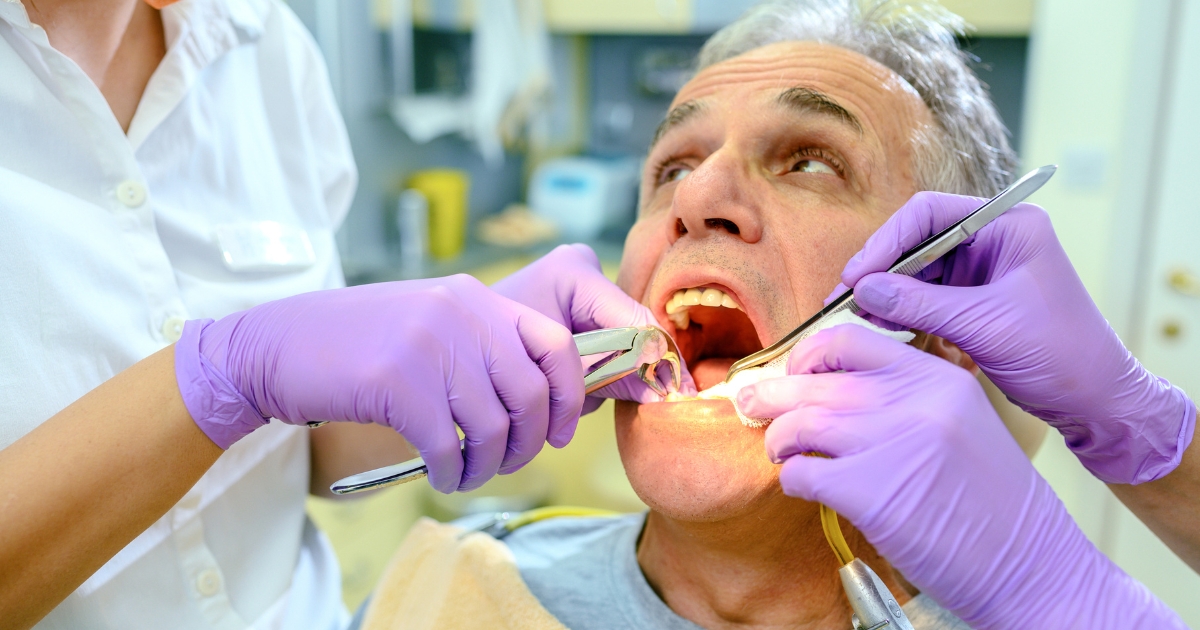
Tooth extraction is a standard dental procedure that can improve oral health. It’s a solution when other treatments aren’t effective. According to the American Dental Association (ADA), over 5 million people in the U.S. have a tooth extracted yearly. Tooth extraction is not always the first option, but it’s sometimes necessary for various reasons. If you’re wondering about the reasons for tooth extraction, understanding the need for the procedure can guide you toward making the right decision for your dental health.
Tooth Extraction Types
Tooth extractions fall into two main categories: simple and surgical.
A simple extraction is typically performed when a tooth is visible and can be removed easily.
A surgical extraction may be required if a tooth is broken below the gum line or impacted.
A restorative dentist treating tooth extraction in Farmington Hills, MI may recommend an extraction when other treatments cannot save a tooth. The correct extraction type depends on the issue’s severity and the tooth’s position.
Top Reasons You Might Need a Tooth Extraction
Let’s dive in to understand why you might need a tooth extraction.
1. Severe Tooth Decay
When a tooth’s decay is too extensive to repair, tooth extraction may be necessary.
Severe decay compromises the tooth structure, making it vulnerable to infection or abscess formation. If left untreated, the infection can spread to surrounding teeth or the jaw, leading to further complications.
2. Gum Disease (Periodontal Disease)
Advanced gum disease can lead to tooth loosening. As the condition progresses, the gums, ligaments, and bone supporting the teeth deteriorate.
If left untreated, this can cause teeth to shift or even fall out. A restorative dentist might suggest an extraction to prevent the infection from spreading further and protect overall oral health.
3. Impacted Wisdom Teeth
Wisdom teeth often become impacted, meaning they don’t fully emerge through the gums.
This can cause pain, swelling, and misalignment of other teeth. An impacted wisdom tooth can also lead to infection. Tooth extraction is commonly recommended to prevent long-term dental issues and discomfort for impacted wisdom teeth.
4. Overcrowding And Misalignment
Overcrowding occurs when there is not enough space for all the teeth. In these cases, tooth extraction can help with orthodontic treatments like braces.
Removing teeth can create space, allowing the remaining teeth to shift into proper alignment and improving overall bite and smile aesthetics.
5. Trauma Or Injury To The Tooth
Accidents or sports injuries can cause teeth to fracture or break. Tooth extraction is often the only solution when these injuries cannot be repaired.
A restorative dentist will assess the damage and recommend extraction if the tooth is beyond saving, ensuring no infection or further complications develop.
6. Failed Root Canal Treatment
Sometimes, a root canal fails to address the problem entirely, or a tooth may reinfect after the procedure.
In such cases, a restorative dentist may recommend tooth extraction. A reinfected tooth can lead to persistent pain and may affect surrounding teeth if not extracted.
7. Risk Of Infection Or Abscess
Infections or abscesses can form within or around a tooth, causing significant pain.
If an infection is severe, it can spread to other areas, risking further health complications. Tooth extraction is necessary to eliminate the disease and avoid more serious issues like sepsis.
What To Expect During And After A Tooth Extraction?
Your dentist will numb the area with a local anesthetic during the extraction. Sedation may be used for surgical extractions. The tooth will be carefully removed, and any necessary stitches will be applied.
After the procedure, it’s essential to follow aftercare instructions for healing. This may include taking pain medication, avoiding certain foods, and cleaning the extraction site. Follow-up appointments are important to monitor recovery and ensure no complications arise.
Alternatives To Tooth Extraction
Before resorting to tooth extraction, alternatives include root canals, crowns, or dental fillings.
These restorative options are often considered first to save the tooth. However, when these methods fail, extraction becomes the best option for preserving oral health.
Tooth extractions are often necessary to preserve your oral health. Extractions can improve your smile and prevent future complications, whether due to severe decay, gum disease, or other reasons.
If you’re unsure whether you need an extraction, consult a restorative dentist who can guide you in making the right decision for your teeth.
By Village Family Dentistry
Related Articles
New patients and emergency appointments welcome


